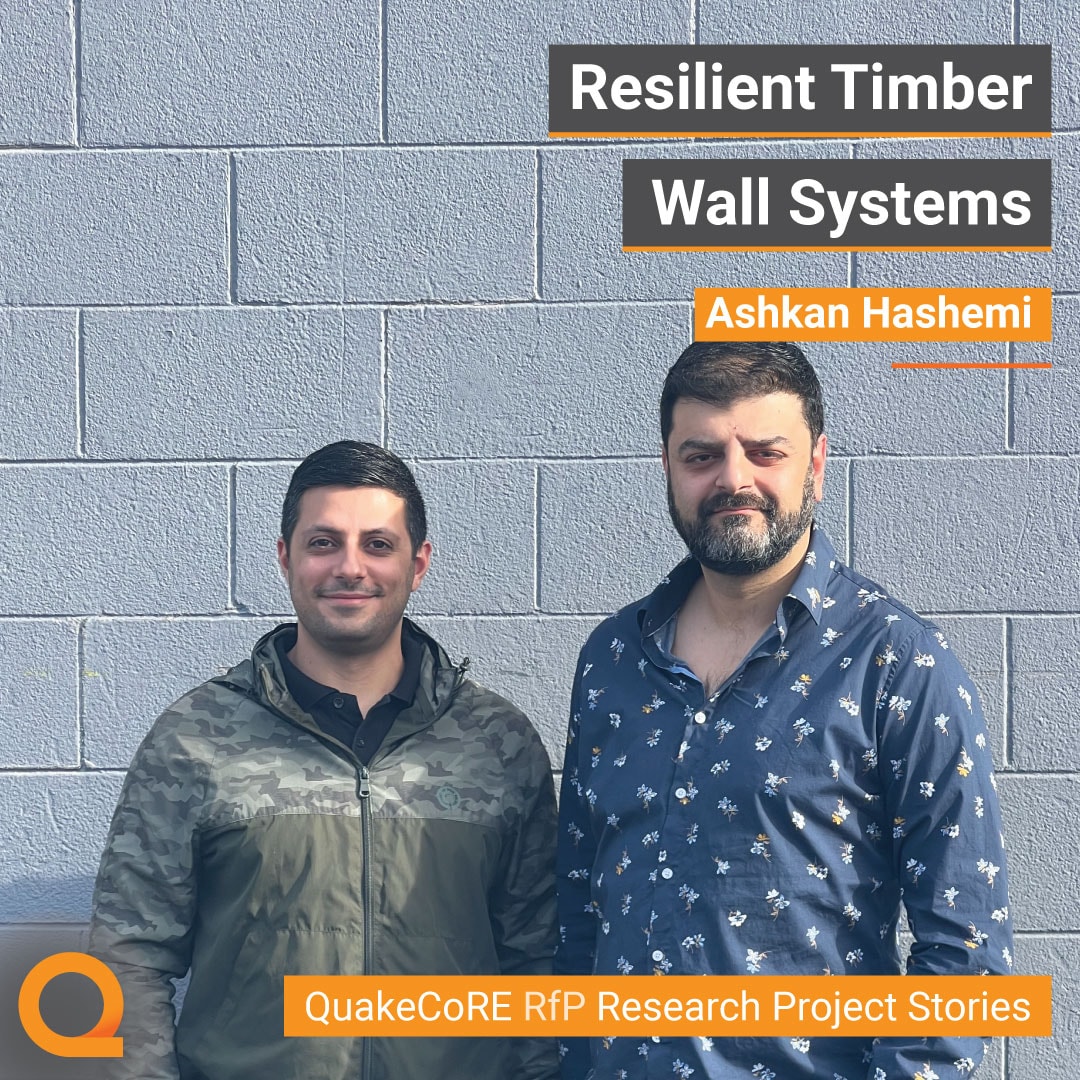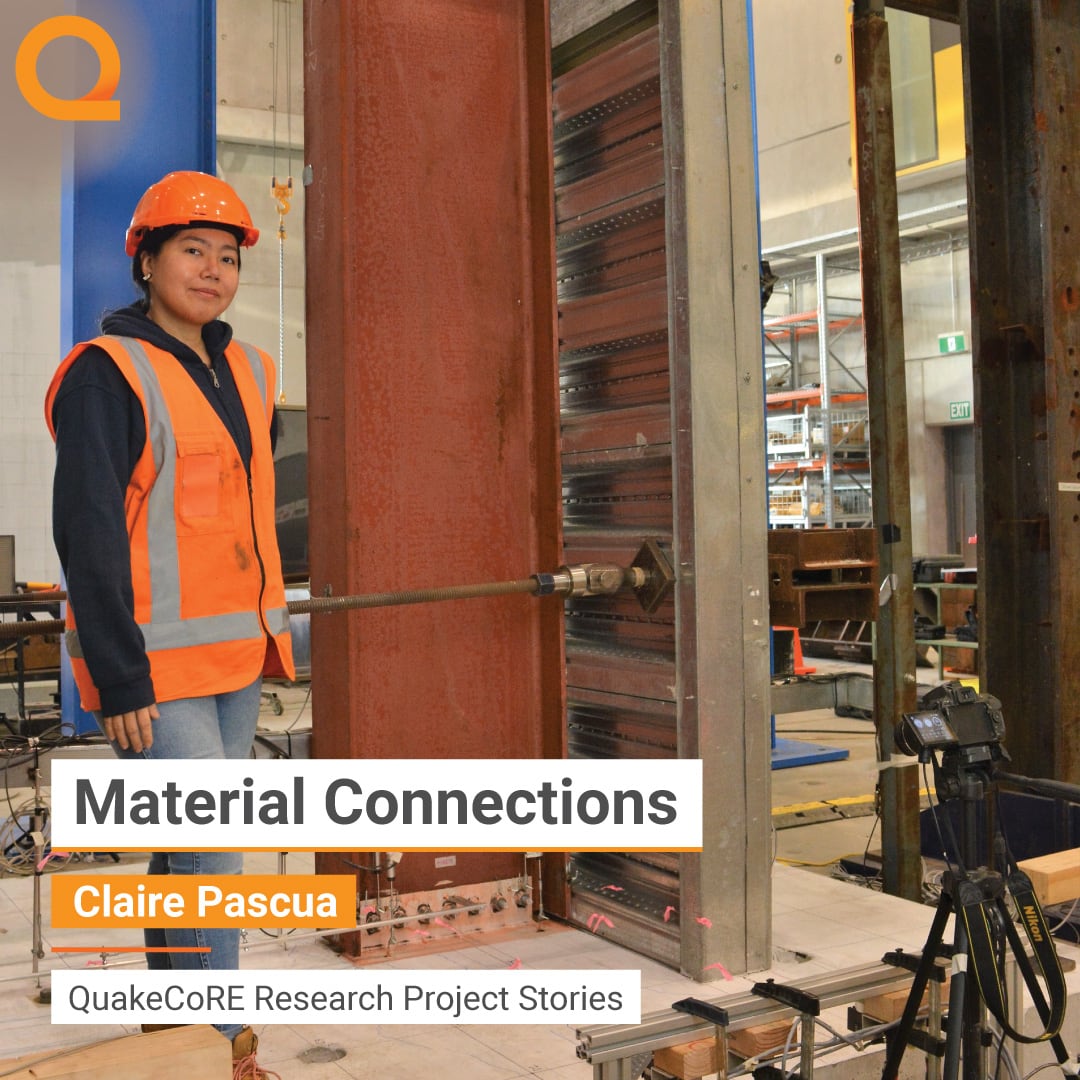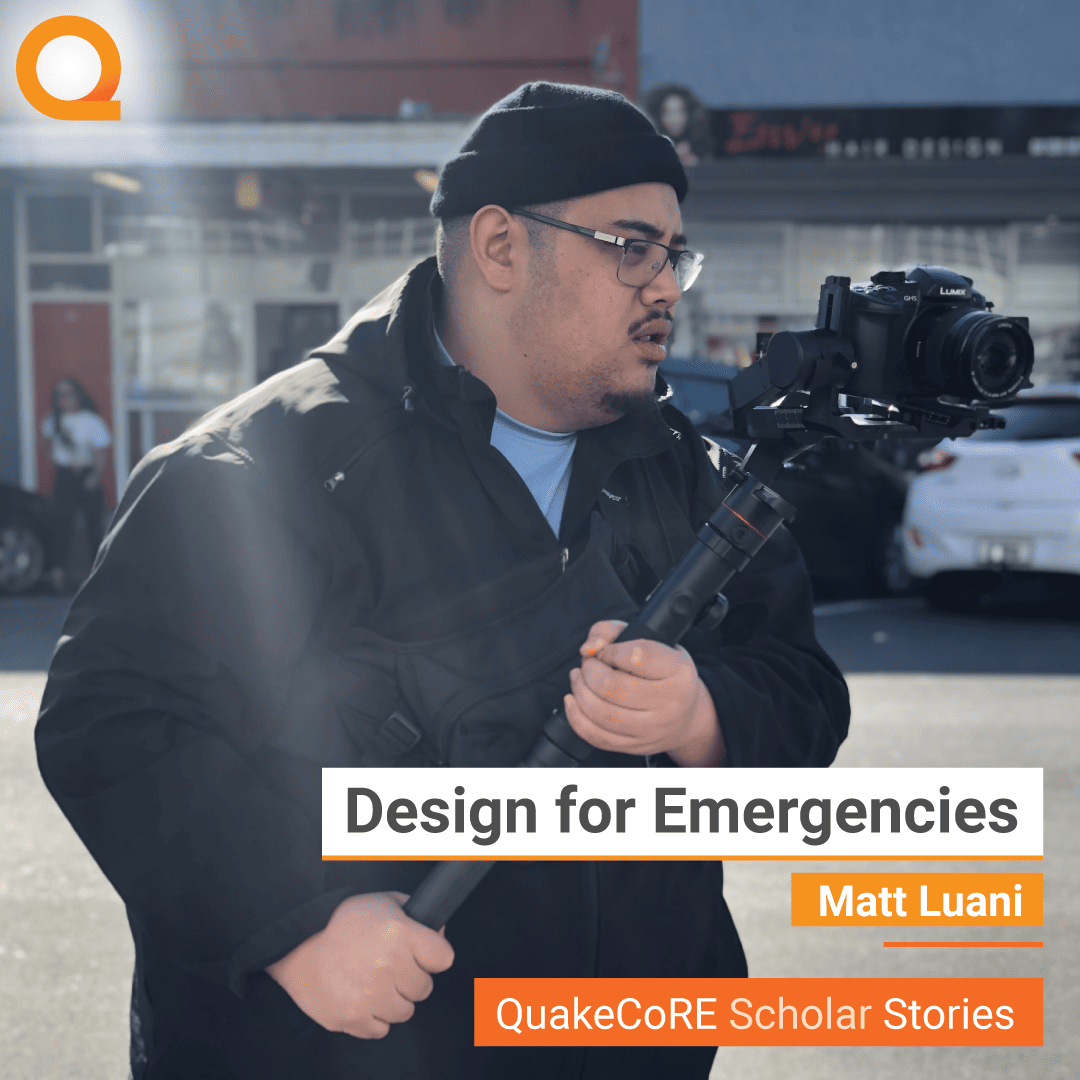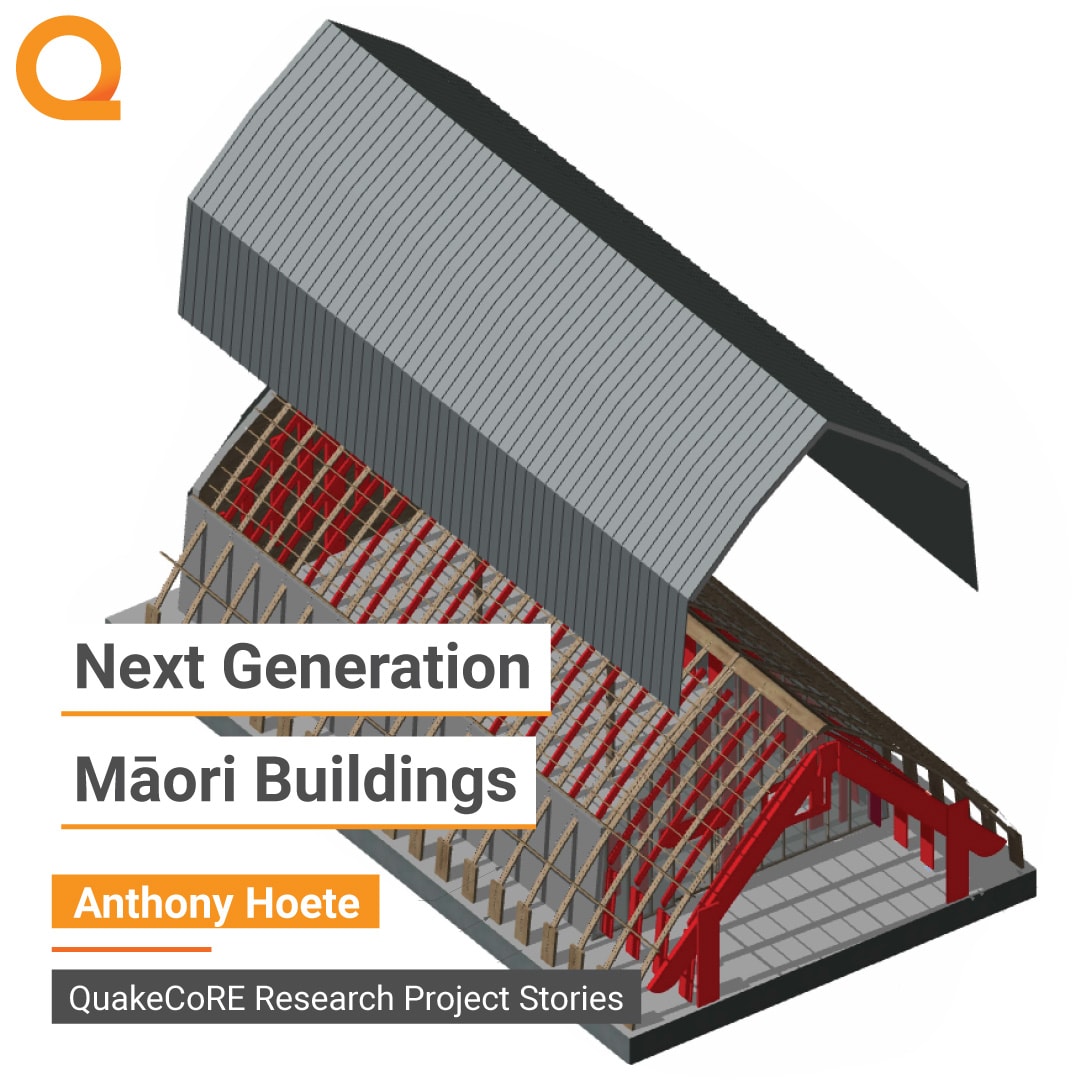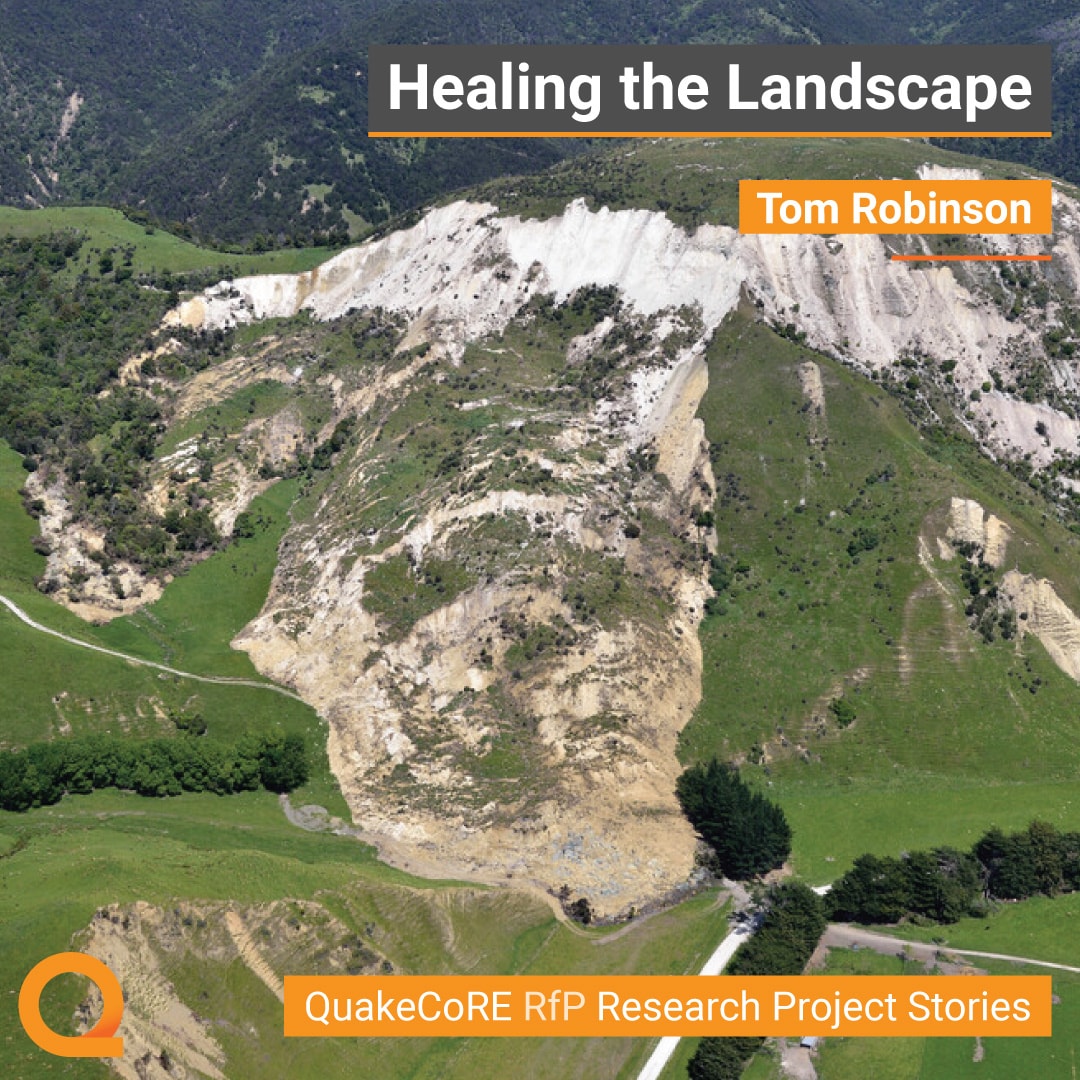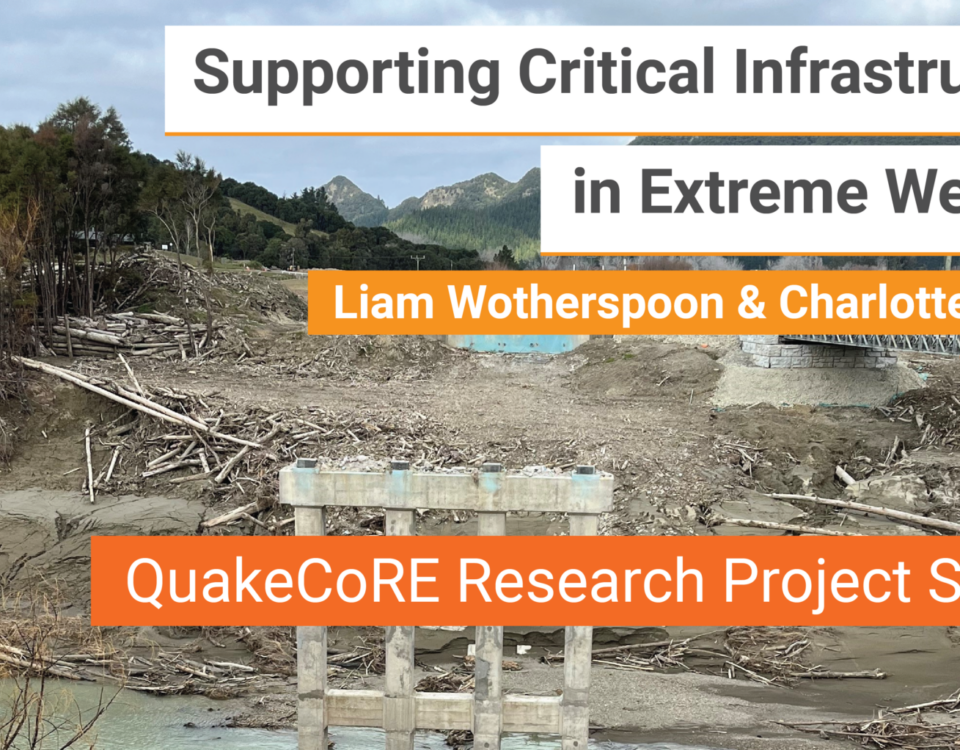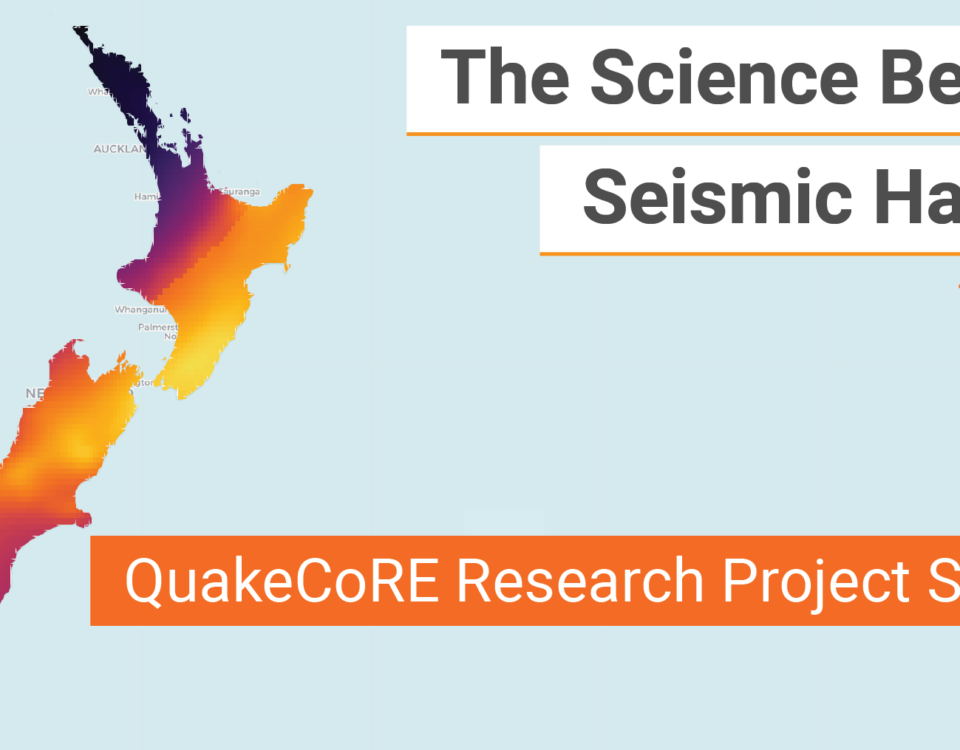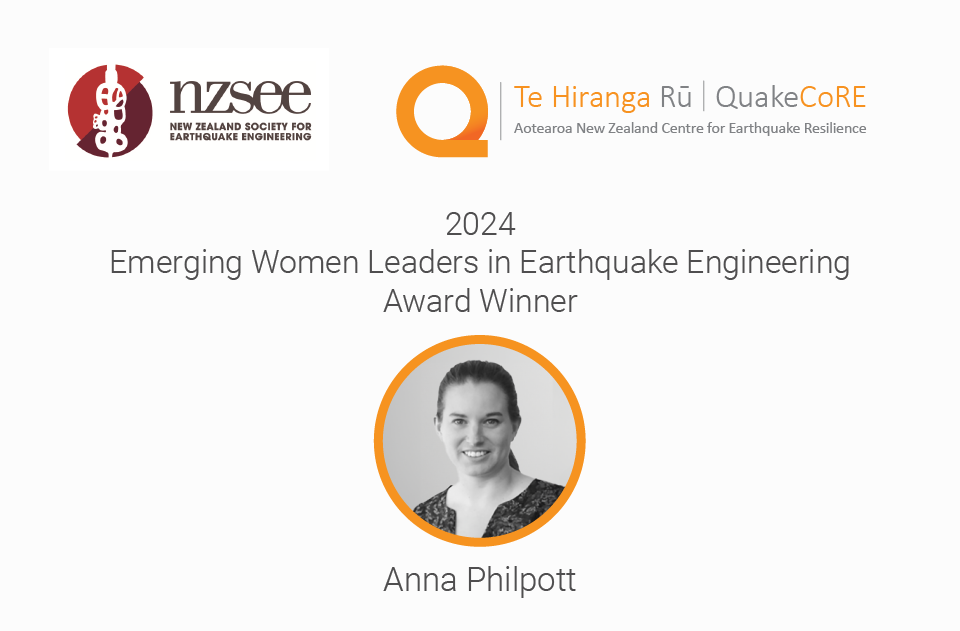
Te Hiranga Rū QuakeCoRE International Delegation Funding
September 19, 2023
QuakeCoRE Seminar – 13 October 2023
September 21, 2023

Tim Sullivan, John Maley and Tom Francis are keen to start manufacturing a base isolation system for residential houses. Image credit: University Of Canterbury
Scholar to Innovator
Aotearoa New Zealand houses are pretty good at not collapsing in earthquakes. But we have a long way to go when it comes to reducing earthquake-related damage. Following the Canterbury Earthquakes, $16 billion was paid out by Toka Tū Ake EQC for damage to houses.
The magnitude of damage to residential buildings inspired engineers at the University of Canterbury to investigate mechanisms for protecting houses from ground shaking. Te Hiranga Rū QuakeCoRE scholar Tom Francis, with his supervisor Tim Sullivan, set out to design and test a base isolation system for houses.
Base isolation systems, originally developed in Aotearoa New Zealand, enable a building to be separated from the ground during strong shaking, thereby minimising damage. Despite being well-proven, they’ve mainly been used in large public buildings because of the cost involved in construction and installation.
Tom and Tim, collaborating with Andre Filiatrault, a base isolation specialist in Italy, have come up with a way to make them cheap enough to use under houses. Tom says,
“We’ve used similar materials but because houses are lighter than civic or commercial buildings, the forces on them in an earthquake will be smaller, so we can scale everything down.”
All materials were sourced from local suppliers, and they worked with a residential builder to make sure construction methods were within normal building practice.
One of the challenges the team faced was that a house that’s designed to slide around on Teflon pucks and stainless-steel surfaces in an earthquake, may also slide around in high winds. They overcame this by adding a concrete slab on top of the base isolators to make the house too heavy to be blown around.
So far, they’ve built a complete room on top of base isolators and tested the system on a shake table using earthquake records from the Darfield and Kaikōura Earthquakes as well as a hypothetical Alpine Fault earthquake. There was no damage to the room and, perhaps even more importantly, wine glasses remained standing on the coffee table throughout the shake tests.
The obvious practical application of his research motivates Tom to get the base isolators under new houses. Partially funded by QuakeCoRE, Tom is now carrying out postdoctoral research to refine the residential base isolation system. He also has funding from KiwiNet’s Emerging Innovator program so he can be trained and mentored for commercialising his research. Assuming the prototypes get through the next rounds of rigorous testing, and there’s enough interest from the market, Tom would like to start a company selling the base isolators.
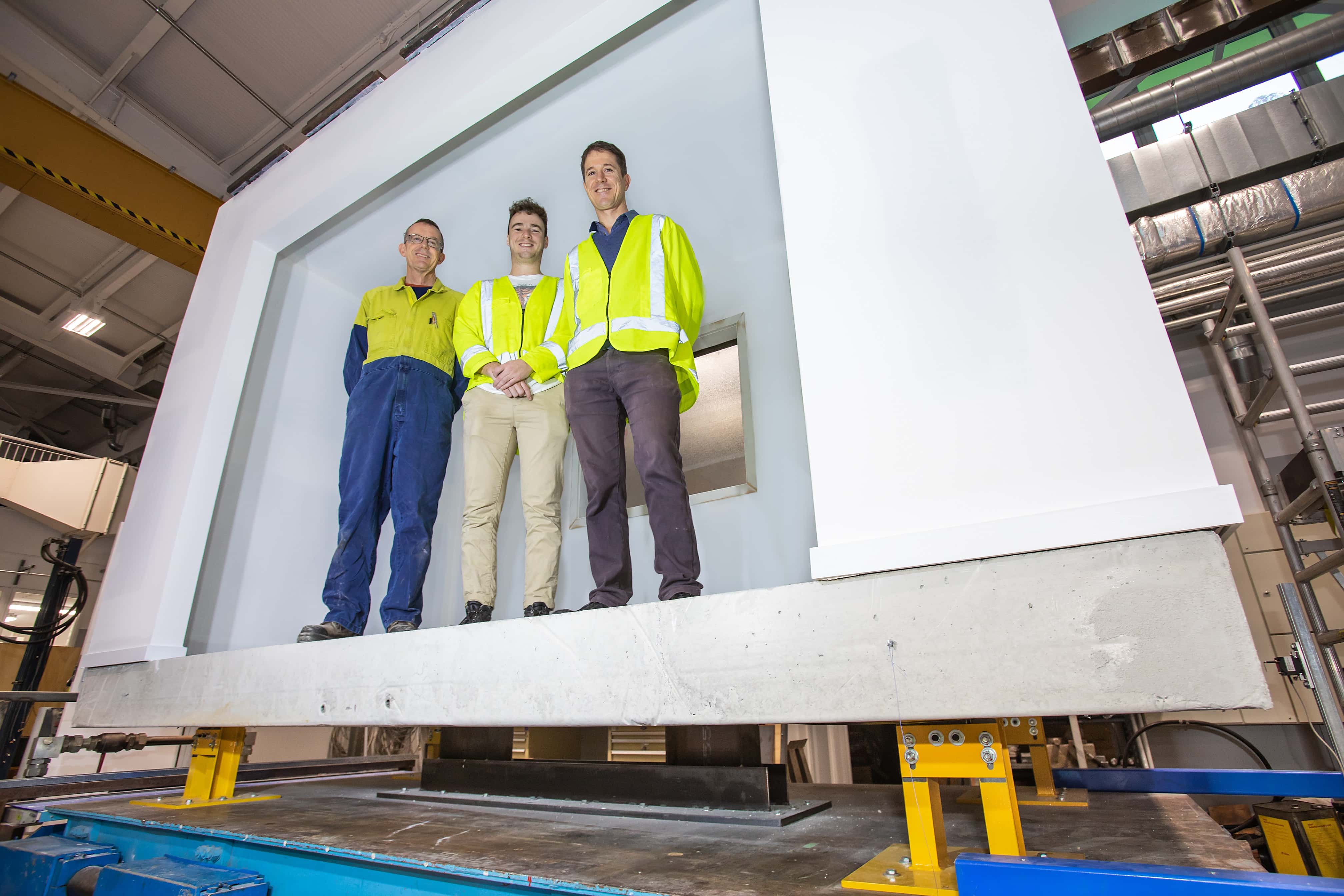
Pictured (from left to right): John Maley, Tom Francis and Tim Sullivan testing the new base isolation system. Image credit: University Of Canterbury
It's early days yet, but Tom likes the idea of being a company director. He’s always been keen on applied engineering. He got interested in low damage design when he worked at BECA for a year, so the PhD topic was a good fit for him. Originally from Invercargill, Tom makes the most of living in Christchurch by traversing everything from the mountains to the sea – skiing in the Alps in winter and boating in Kaikōura whenever he’s not shaking houses for a living.
You can see the base isolation units being tested back in 2021 in this 1News report video here.

Our annual Request for Proposals (RfP) supports eighteen-month, Associate Investigator led research projects that complement the Coordinated Research Projects within the Disciplinary Themes (DT) and Inter-disciplinary Projects (IP) of QuakeCoRE's Research Programme.
The RfP includes Proposal Development Grants which enable early career researchers to develop strong contestable external research proposals.
At the time of publishing, the annual call for RfP Projects, Masters and PhD Scholarships funding is open now, until midday, Wednesday 18 October 2023.
For more information visit the Opportunities page of our website, or contact [email protected]
Stay up-to-date with the QuakeCoRE monthly Newsletter



